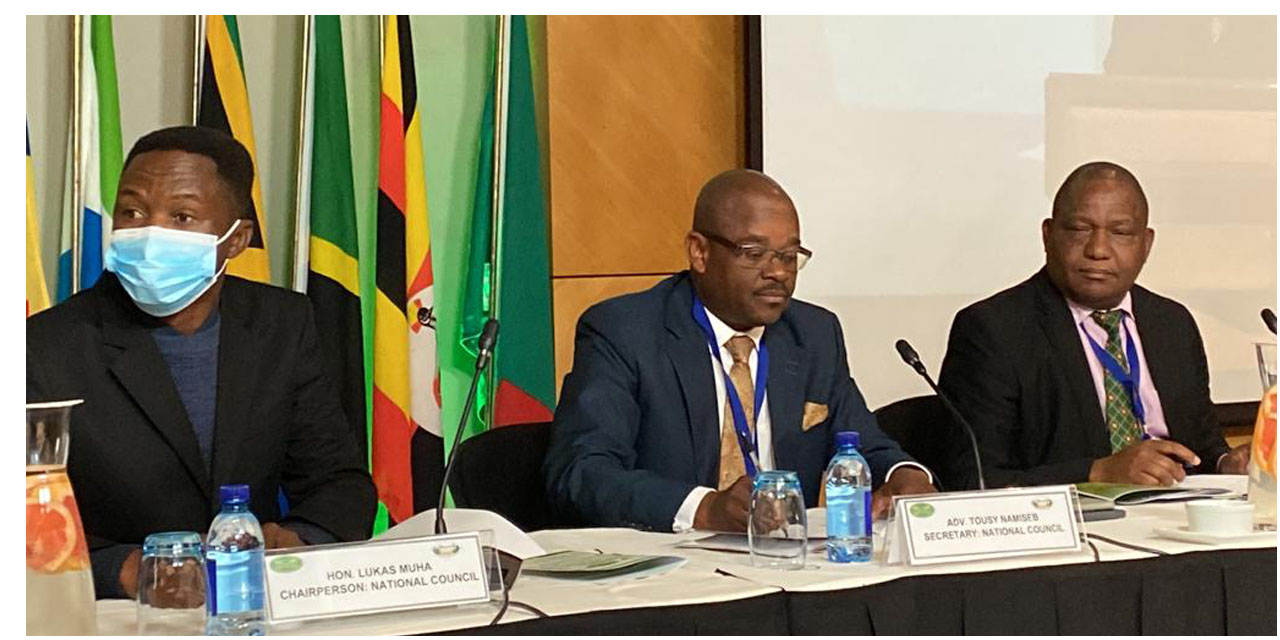Martin Endjala
A delegation comprising parliamentarians from various African states have been urged to familiarise themselves with the evolving technology to become relevant in the new normal.
Lukas Sinimbo Muha, Chairperson of the National Council express this sentiment during the official opening of the Sixth Society of Clerks-at-the Table (SOCATT) professional development seminar today in Windhoek today.
Concerns raised centred on parliamentary administrative duties as well as human resources that of late is feeling the effects of evolving technology, as well as their reluctance do things as usual.
These the chairperson stressed require parliamentarians to move away from tradition, lamenting that it can no longer be business as usual. Muha said the evolving world requires parliament to have its members integrated into the new way of doing things through capacity building of its institutions and people.
“We have observed and learned that Parliamentary operations need urgent transformation in order to move away from the traditional way of only conducting parliamentary business on a face-to-to face basis, to accommodate new way of doing things without neglecting the core functions of Parliaments which are representation, law making and oversight over the executive,” Muha opined. The new normal created by COVID-19, is said to have left Parliaments with no other option but to adopt ICT and e-parliament methods in their day to day running of their administration and transacting chamber business.
Hence, there is a need for Parliaments to adopt adaptive and innovative capacity building approaches for staff, as well as human resource management practices that will respond positively to the envisage transformation and re-engineering of parliamentary administration and chamber business.
This year’s SOCATT seminar theme is aimed at re-engineering parliamentary service delivery. Muha pointed out that re-engineering requires innovators and innovation.
Further stating that the seminar presents a great networking opportunity with fellow professionals.
He urged participants to capitalize on the opportunity by connecting, sharing solutions and expertise beyond the seminar.
“As staff members of Parliament you are the engine rooms of the Houses. Your capacity and skills as Parliamentary staff makes Parliaments stronger institutions that are transparent and accountable to citizens”, Muha asserted.
Parliaments and legislatures are responsible for ensuring that policies and regulatory frameworks governing countries benefit the population.
It is for these reasons, Muha stressed, that as principal advisors, they ought to be on top of their game to ensure that the legislative branch charged with three core functions of representation, law making and oversight over the executive branch is delivering on its constitutional mandate.
The National Democratic Institute in 2007 indicated that legislators often face constraints in fulfilling their roles and responsibilities, including weak individual and institutional capacity, little independence from more powerful executives and ruling political parties, and limited political will.
Because of capacity constraints, and a lack of strong analytical backgrounds, high quality policy analysis is sometimes difficult.
The chairperson thus, called on parliamentarians attending the seminar, to not allow institutional capacity to be one of the weakest link of Parliaments in delivering their Constitutional mandates, but to rather work on ironing out the weakness and be a parliament that is advanced with technology and on par with the changes that it finds itself.
Advocate Tousy Namiseb, the National Council secretary, opined that when parliamentarians engage in discussions of this nature, they should always ask themselves if what they are saying is impacting the masses and not to simply just do or say for the sake of it, but to rather serve the masses who voted for them to deliver and change their livelihoods.




